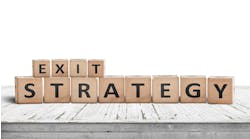With claims business dropping in some markets and many consumers delaying repairs, collision shop owners have had to be creative when searching for new ways to boost business. For women- and minority-owned shops, there are a number of opportunities to gain new fleet business by taking advantage of diversity requirements that many government agencies and private businesses must meet.
"These are great alternative sources of income to a repairer," says Kristen Felder, founder and CEO of Collision Hub Consulting. "Specifically in today's market, if you talk about diversifying your income base and not necessarily wanting to have all your eggs in an insurer or DRP-type basket, some of these supplier diversity initiatives are wonderful ways to add an additional source of income to your business."
Felder led a panel discussion on "Supplier Diversity" at the Women's Industry Network (WIN) 2010 Conference on May 3.
"The claims business fluctuates," Felder says. "But fleet work and work with city agencies is something you can count on on a regular basis."
Most city and state agencies are required to farm out a certain portion of their contracts to minority-owned businesses. For body shops with female owners, that can be a foot in the door to some lucrative fleet contracts. Even many private businesses, such as large trucking firms or franchise operations (like landscape companies or delivery companies) might have these types of diversity requirements.
"There are advantages given to women or minority-owned businesses during the bidding process," Felder says.
To qualify, shops have to be certified as minority-owned businesses within their state. "There is a whole pile of documentation you have to provide to the state," says Barbara Morgan, owner of Nissens CARSTAR Autobody Shop in Palm Bay, Fla., who also participated on the panel. "But now that we've done that, it gives me work I wouldn’t have otherwise. When state employees are looking for a shop, we pop right up there."
Morgan said the certification process took her about three months. The shop also is certified as a minority-owned business by the federal government, which has opened up business opportunities with nearby Cape Canaveral.
Many insurance companies also give special consideration to minority-owned businesses when evaluating shops for participation in their DRP programs.
"That status can give you an extra nudge," Morgan says. "If there's an apples-to-apples comparison with another shop, it can help you get on the program."
In most cases, the business has to be 51 percent female owned – and not just on paper. The women in these businesses have to be active participants in running the shop. "For some shops, if you are only 49 percent female owned right now, there may be a benefit to restructuring your business so that it is 51 percent female owned instead," Felder says. "Everyone is looking for diversity and something that can give them a leg up."
There also are federal, state and municipal grant programs that can help women-owned businesses purchase new equipment or expand their operations, as well as venture capital firms that invest exclusively in women-owned businesses.
To get started, shops should contact their local small business administration. For grants, it may be worthwhile to engage a third-party consultant that can provide professional grant-writing services. "I'd recommend it," Felder says. "I tried doing it on my own for my business, but once I hired a professional grant writer things went more smoothly."
Grants aren't just "free money" to do with what you please, though. There are usually stipulations. "In many cases, they are very specific about what you purchase with the money, or that you use it specifically to hire new employees, for instance," Felder says. "They follow up on that."
Not all grants are tied to the owner's minority status. Morgan, for instance, received a municipal grant to help with beautification outside the shop. "Anything I spend on beautification, the city matches it by 50 percent," Morgan says. "Cities have different levels of grants."
"In today's economy I'll take all I can get," Morgan adds. "I've been hunting for fleet work all year because people just aren't fixing their cars right now. If I didn't have that fleet work, I'd be hurting."




